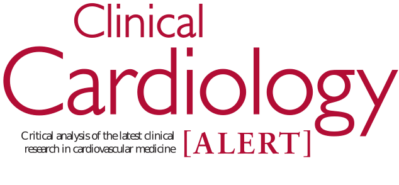
Clinical Cardiology Alert – October 1, 2023
October 1, 2023
View Issues
-
Is Planned Complete Revascularization After Myocardial Infarction Wise for Older Patients?
Among patients at least age 75 years presenting with acute myocardial infarction and multivessel coronary disease, physiology-guided complete revascularization led to a lower risk of major adverse cardiovascular events at one year vs. culprit lesion-only percutaneous coronary intervention.
-
High-Impact Clinical Trials from the European Society of Cardiology Congress 2023
The following is an overview of important cardiology research presented Aug. 25 through Aug. 28 in Amsterdam and online during the ESC Congress 2023.
-
The Hemodynamic Effects of an SGLT2 Inhibitor in Heart Failure with Preserved Ejection Fraction
The authors of a small, placebo-controlled study of 24 weeks of dapagliflozin therapy in patients with heart failure with preserved ejection fraction reported reductions in pulmonary capillary wedge pressure, which may explain the reductions in heart failure hospitalizations or cardiovascular death in larger randomized outcome trials.
-
Is the Combination of a GLP-1 Agonist and a SGLT2 Inhibitor Safe?
Adding a GLP-1 RA in a subgroup of type 2 diabetes patients on baseline SGLT2 inhibitor therapy revealed GLP-1 RA reduces major adverse cardiovascular event rates, regardless of baseline SGLT2 use.
-
An RNA Shot for Hypertension?
One dose of a new RNA-based drug administered by subcutaneous injection, which blocks hepatic angiotensinogen production, resulted in sustained reductions in blood pressure in patients with hypertension for up to 24 weeks without any serious adverse effects.
